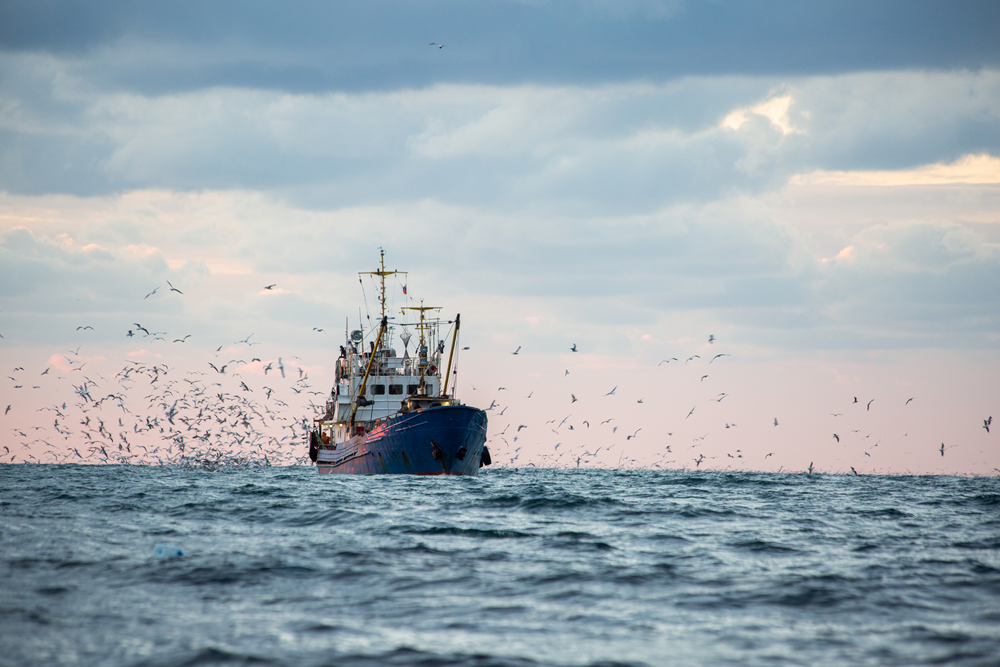EU Ocean Pact: A blueprint for the future of bottom fisheries

The European Commission today unveiled the EU Ocean Pact as a first step toward better alignment of marine policy with science, innovation, environmental responsibility and food security.
EBFA welcomes the Pact’s recognition of fisheries as a vital economic sector essential to ensuring food supply, security and sovereignty. At the same time, the Pact rightly highlights the EU’s 70% dependence on seafood imports—a strategic vulnerability that must be urgently addressed. The Alliance strongly supports the commitment to prioritise domestic seafood production, including the 25% of total EU landings provided by bottom fishing, in future marine policy decisions.
The Alliance welcomes the Pact’s focus on implementing marine protection measures on a case-by-case basis, reflecting the unique ecological, economic, and social characteristics of each marine region — including with respect to strict protection targets. EBFA further recalls that these targets must be equally strict for all blue sectors. However, even if intended as aspirational, this approach directly conflicts with the proposed phase-out of bottom fishing in Marine Protected Areas (MPAs) by 2030, as outlined in the annex—adding further uncertainty and confusion to the issue.
While not directly addressed in the Pact, the continued reduction of the EU fleet and its workforce is a concerning trend. This underscores the urgent need for simplified policies, reduction of bureaucracy and incentives that support Europe’s seafood production capacity and protect the livelihoods of coastal communities. For this, EBFA believes that ocean protection must be guided by cutting-edge science and technology, which, in many cases, is still insufficient.
In this vein, EBFA welcomes the Ocean Research & Innovation strategy’s focus on establishing a robust EU ocean knowledge framework and fostering new industry alliances. Advancing technologies that enhance competitiveness while reducing emissions and environmental impact is the way forward for a sustainable and resilient blue economy. As the Paris Agreement makes clear, environmental targets must be pursued in ways that do not jeopardise food production. EBFA is committed to working constructively with EU institutions to balance these two objectives.
EBFA also welcomes the forthcoming revision of the Marine Strategy Framework Directive (MSFD). The Commission recognises that, despite progress, the EU still lacks adequate tools, methodologies and modelling capacity to effectively assess what is needed to achieve Good Environmental Status (GES)1. In this context, the Alliance urges that past missteps, such as the blanket designation of 10% of the seabed as ‘reference areas’ free from all human activity, are not repeated. Effective ocean governance must strike a careful balance between conservation objectives and the economic resilience of our maritime communities.
However, it is striking—and concerning—that while the Commission recognises the gaps, as well as the need to revise and simplify the MSFD policy framework and reduce administrative burdens, it simultaneously insists on meeting the same targets established under those flawed conditions. This inconsistency raises serious doubts about the coherence of the overall approach.
Iván López, Chair of EBFA, declared: ‘We support an ocean vision built on innovation, knowledge and balance. The Ocean Pact recognises many of the challenges we face—from the need for better science to the urgency of addressing Europe’s seafood dependency. What we need now is practical, region-specific implementation that reflects both ecological goals and the vital role of bottom fishing in ensuring food security and continued prosperity of coastal economies. Yet, continued calls for broad, scientifically unsubstantiated restrictions—such as the phase-out of bottom trawling—continue damaging the image, reputation and viability of the fleet. It not only frustrates all the technological advances and investments made over the past years but also threatens EU (sea)food production and sovereignty. This clearly goes against the driving principle of the Ocean Pact: competitiveness.’
PDF VERSION
Press contact
Daniel Voces, Secretary of EBFA, info@bottomfishingalliance.eu +32 489268107
[1] Report on the Commission’s assessment of the Member States’ programmes of measures as
updated under Article 17 of the Marine Strategy Framework Directive (2008/56/EC) (COM(2025) 3 final), page 25